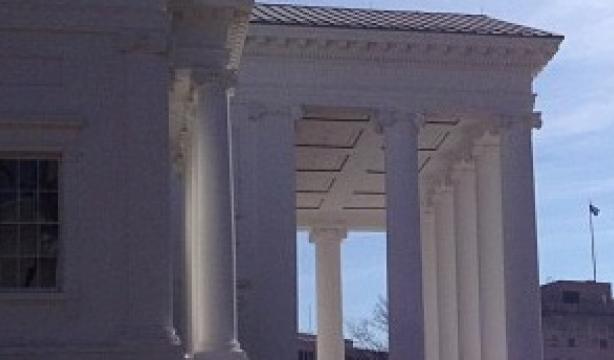It's all over, except for the vetoing.
The Virginia General Assembly adjourned sine die (which, depending on which chamber you are in is pronounced "see-nay dee-ay" or "sigh-nee die") Feb. 23, with a groundbreaking transportation package and a supposed deal on Medicaid expansion.
Along the way, the 140 members of the House and Senate also managed to make a whole of more public information confidential. As reported by and editorialized on by the Virginian-Pilot, the word "transparency" was bandied about quite a bit during the session, but the legislators' words did not always match their actions.
Exemptions were passed that will limit access to some correspondence of legislative aides, to evacuation plans for hospitals operating under certificates of public need, to certain flight plans filed at regional government airports, to records and meetings of the Jamestown-Yorktown Foundation and to bank self-assessments.
All concealed handgun permit applications will now be off-limits, too, thanks to a bill that was radically amended from its original purpose and reported from committee to House floor in less than 24 hours.
The underlying presumption of open-records laws across the country was reversed by the passage of a bill that says records involving children involved in programs put on by parks and recreation departments are closed unless parents "opt in" to disclosure. (VCOG spoke to the Virginia Recreation and Park Society Management Conference last week and there were many questions about what the change will do in terms of releasing names or photos in rosters, press releases, brochures or on websites.)
And a new entity — the Nuclear Energy Consortium — will be created to assist a public body, but the consortium will not itself be subject to FOIA or a half-dozen other good-government laws.
Bills both good and bad were sent to the FOIA Council, but good bills on apprising citizens of charges that might be incurred for FOIA requests at state agencies, and one requiring advance posting of the budget online prior to any votes, were both spiked.
There were a few brights spots: the bill to require higher education boards of visitors to undergo annual FOIA training passed, as did a reorganization and clarification of the criminal records section of FOIA, plus an adjustment to the electronic meetings provisions. And all bills to take public notices and requests for proposals out of newspapers were defeated.
Overall, it was a disappointing session for open government. VCOG is very appreciative, however, for all the calls, letters and emails our members and friends sent out on issues we care about. We couldn't ask for a more dedicated bunch of supporters.
